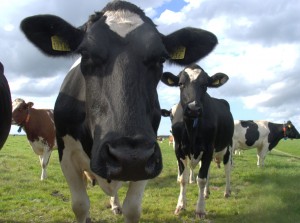 Phosphate Rights in the Netherlands. The longest April Fools’ prank in the Netherlands under the heading “milk as much as you want from 1st April 2015” ended on 3rd March 2016 with a new quota system for milk producers and shall go down in history as the most expensive joke at the expense of Dutch milk producers.
Phosphate Rights in the Netherlands. The longest April Fools’ prank in the Netherlands under the heading “milk as much as you want from 1st April 2015” ended on 3rd March 2016 with a new quota system for milk producers and shall go down in history as the most expensive joke at the expense of Dutch milk producers.
Derogation conditions
In 2002, the Dutch government negotiated derogation conditions with the Nitrates Committee in Brussels. It was decided that the Dutch livestock sector would not exceed the 2002 level of phosphate production: 172.9 million kilograms. However, soon after the abolition of the milk quota, the production of phosphate from animal husbandry did exceed this limit due to the growth of the dairy herd. On 2nd July 2015, it was announced that dairy farmers would get so-called “phosphate rights”.
On 3rd March, Mr. Martijn van Dam, State Secretary of the Dutch Ministry of Economic Affairs – which is responsible for agriculture – further explained in a letter addressed to the parliament how he plans to implement this new kind of quota system. The letter also clearly states that the State Secretary does not take any responsibility for the mismanagement of the Ministry of Economic Affairs in recent years.
Responsibility
Lobbying very hard for the abolition of the milk quota system while lagging behind on necessary regulations to prevent phosphate production from exceeding the limit value makes the Dutch government directly responsible for the problems that have arisen from this indifference.
The dairy sector has to reduce phosphate production by 4%. The Dutch government has to take action rapidly in order to keep the current derogation and prevent measures from ‘Brussels’. The State Secretary, however, suggests starting with a generic system of phosphate reduction in 2017, to be completed by 1st January 2018 (farmers who go out of business must give up at least 10% of the phosphate rights allocated to them).
Opinion DDB
The DDB is of the opinion that it is too late for this approach. The Dutch government has to report to the Nitrates Committee on the current derogation by mid-2016. If the Netherlands fail to meet the conditions of the agreement, they will have a legal problem. Recovery efforts through a generic reduction in 2017 will therefore come too late and be insufficient to show ‘Brussels’ that the Dutch government has taken all necessary steps to fulfil their legal agreements.
The landscape of the Dutch dairy sector is set to change – all due to mismanagement on the part of the government, the dairy industry and some so-called “interest organisations for milk producers”, who in their greed have damaged our sector forever.
Sieta van Keimpema, President Dutch Dairymen Board

